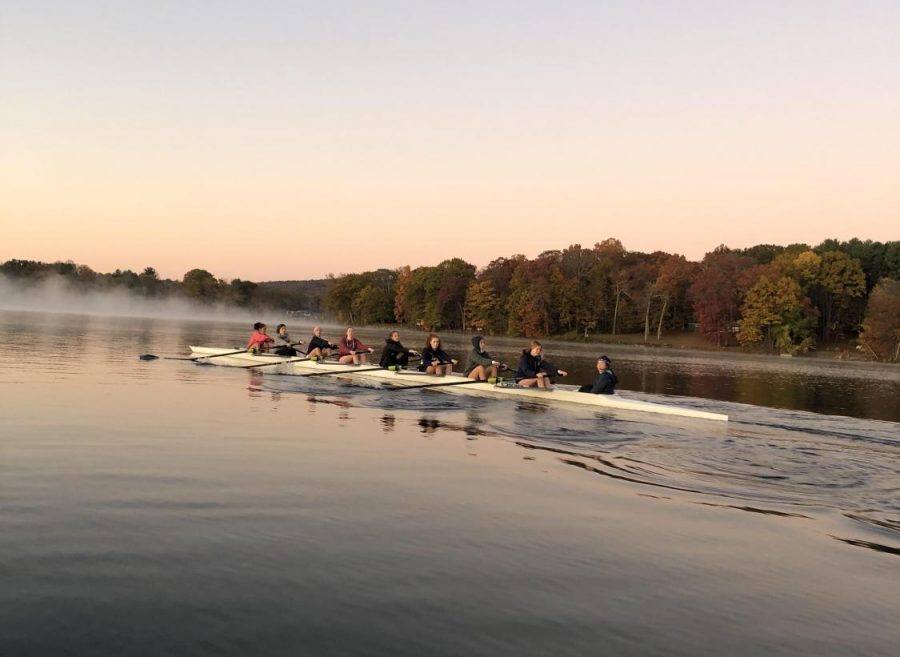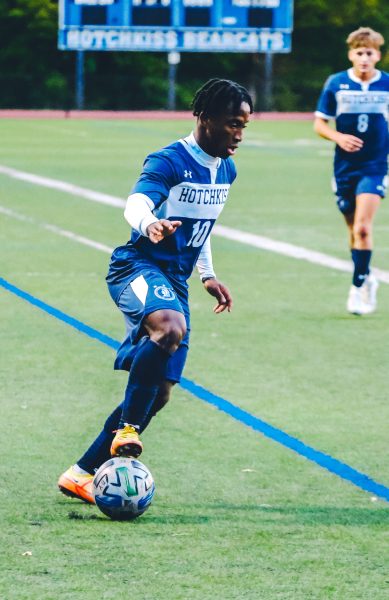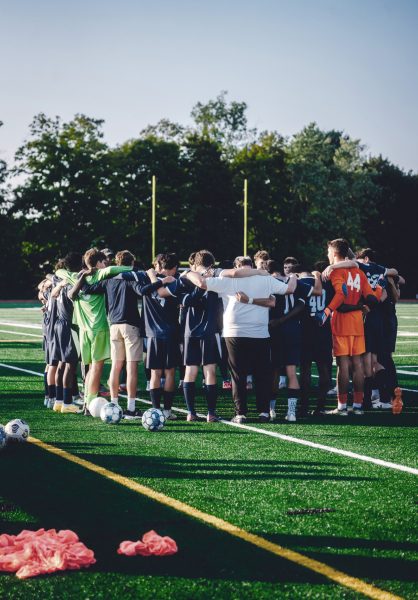Fall and Spring Athletes Get a Head Start
Winter and spring teams can now practice at scheduled times with coaches this fall.
Although the New England Prep School Athletic Conference (NEPSAC)’s cancellation of the fall season devastated many fall athletes, it does come with certain benefits for winter and spring athletes. In July, the athletic conference lifted its ban on out-of-season coaching, announcing that winter and spring teams could now practice at scheduled times with coaches this fall.
The school has taken advantage of these new guidelines in two ways. First, the low-risk sports of swimming, golf, rowing, tennis, and squash have been designated as fall “varsity concentration” co-curriculars, meaning that students can fill their co-curricular requirement by training for their winter or spring sport four days a week. Because these sports have minimal contact, they are the easiest for the school to implement as a trial run. Athletes from the low-risk teams are able to dedicate more time to their sport, train consistently, and build strong bonds before their seasons begin. Max Beckwith ’21, a Senior on Boys Varsity Tennis, hopes that playing with a coach will help him focus on his main sport in the fall. He said, “With a coach around, it will provide more structure, and kids can work on specific parts of their game instead of just hitting or playing for fun.”
In the past, both the league and the school encouraged athletes to try new sports in their off-season, giving them the opportunity to meet more people and expand their skill set by cross-training. However, with NEPSAC’s new rules, athletes will have the chance to become more specialized in their main sports. Beckwith said, “[While] you could definitely get good cross-training out of playing any other sport, I think there’s no substitute for just playing tennis.”
In addition, while Wednesdays and Saturdays were previously game days, coaches will now hold practices on those days for sports with closer contact that the Athletic Directors Robin Chandler ’87 and Danny Smith have identified as having a higher risk, such as basketball, hockey, lacrosse, and wrestling. Many of those teams have optional practices throughout the week in addition to practices on Wednesdays and Saturdays; for example, both the Hockey teams have optional practice every day, and the Basketball teams have frequent open gyms. The practices will allow members of these teams to get to know each other and prepare for their seasons, even though the possibility of having a competitive season is still uncertain. Charlotte Moody ’23, a new Girls Hockey player who plans on practicing with the squad in the fall, said, “I’m so excited to meet the team!”
While spring and winter teams will likely benefit from practices in the fall, the new rules are only temporary. If NEPSAC cancels its winter competition season, the league will likely extend this change in policy to allow fall teams to train out of season as well, according to Hotchkiss Athletic Director Ms. Robin Chandler ’87.
Because almost every school Hotchkiss plays during a regular season is part of NEPSAC, these new rules apply both to Hotchkiss and its opponents. However, if the school’s reopening proceeds successfully before schools such as Choate and Taft reopen (both of which have delayed their openings), Hotchkiss’ winter and spring teams will have an advantage, having trained for months longer than their competitors.
Athletic practices, along with all other co-curricular activities, began on September 17.





